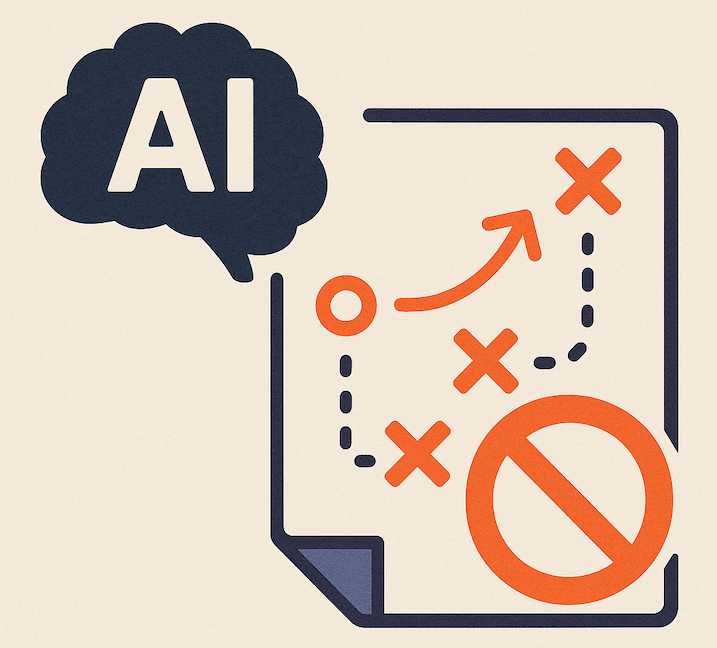
(Image generated by ChatGPT)
One of the big tropes in media coverage of the startup scene in the EU versus the U.S. is that Europe is risk-averse, both at an institutional level and an entrepreneurial one. Where the U.S. forges ahead, guns blazing, the EU forms a committee to check if the plan sounds good (probably over a glass of wine, and a nice cheese).
Last week, I dug ever so gently into the complex differences—financial, legal, historical and entrepreneurial—responsible for different thinking about an investment into space startups in the U.S. (where there’s a sea of money), and Europe (where there’s more of a puddle). It’s fascinating stuff, and there’ll be plenty more digging in future columns. Almost immediately, news landed that French space defence startup Dark was shuttering.
In a LinkedIn post, the small Paris-based company, which had been developing a fully autonomous defense robot that could be launched from a plane, then latch onto a “threat” satellite and kill it by controlled deorbit, said it simply had run out of steam. The ambition had been to “anchor a private capability” that would “strengthen national security and generate economic and diplomatic value through export.” But while other competitors overseas “directly backed by their nations, secured their anchoring and took the lead globally,” Dark said, “the foundation necessary for such privatization never materialized for us in France.”
This is carefully worded, of course, to avoid putting any VC or government noses out of joint. But essentially, it means Dark’s Made-in-France business model just couldn’t thrive in the environment it tried to grow in—that of EU-based space and defence startups.
But that’s space. And as exciting as it is, the buzziest, hottest tech trend is AI.
A slightly more upbeat story is unfolding in European AI developments. In a blog post on its site, the European Commission highlighted “two strategies that will help Europe stay ahead in AI industry and science, respectively.” The “Apply AI Strategy” is all about speeding up the use of AI in key industries and the public sector by shortening time-to-market, boosting the EU workforce to be “AI-ready” and “bringing together Europe's leading AI actors through a new Frontier AI initiative.” There’s also an “Apply AI Alliance,” which is a coordinating body “bringing together industry, the public sector, academia, social partners and civil society.”
“Dark’s Made-in-France business model just couldn’t thrive in the environment it tried to grow in—that of EU-based space and defence startups.”
Lest you despair, this is simply another slow-walking EU committee that’s beginning to start planning for blah, blah, blah… there is actually some money in this plan via the “AI in Science Strategy” initiative.
This includes “measures to attract global scientific talent,” to choose Europe, plus a €600 million fund from the EU’s key funding program Horizon Europe, to boost “access to computational power for science, which will secure access to AI gigafactories for EU researchers” and, crucially, “startups.” The plan also calls for doubling Horizon’s annual AI investments to over €3 billion.
The sums of money involved are interesting, particularly when compared to the AI talent frenzy that spun up between big AI players in the U.S. this summer, which saw leaders, engineers, and researchers poached between big tech firms, and which involved numerous startups like Scale AI. Meta was said to be throwing around million dollar salaries to tempt researchers to join its AI team, and the battle saw Scale’s 24 year-old co-founder and billionaire Alexandr Wang join Meta’s efforts when Mark Zuckerberg’s company pulled off an aqui-hire maneuver by the back door via a $14.3 billion investment in Scale.
That’s one company versus one startup, and one small sample of the billion-dollar scale shenanigans that went on. Compared to Horizon Europe’s plan to scale investments across the bloc to €3 billion. Will this propel the EU to superstar AI heights? We’ll be watching. And asking (California-based) AI market leader ChatGPT for notes.
Let me side-step for a moment to another industry that’s intimately entwined with the future of AI—robotics. You’d think Europe would be able to hold its own in this exciting sci-fi-like field, wouldn’t you? After all, the word robot was coined by Czech writer Karel Čapek.
But does a $5.4 billion acquisition of the robotics unit of Swiss giant ABB Ltd by Japanese multinational Softbank Group sound like European progress to you? ABB is, Bloomberg notes, one of the “big four” industrial robot companies, along with Europe’s Kuka AG and two Japanese firms.
But ABB’s robots are now, essentially, a Japanese asset. And as Bloomberg notes, the big worry is that as we head into an era of “physical AI,” (where fast-growing artificial intelligence tech will power more advanced, more reactive robots that walk on two legs compared with the lumbering car-welding giants we’ve seen before), Europe’s risk-averse habits and lower funding compared to U.S. and Asian industry will see the EU slip off the robotic cutting edge.
And we’re just talking about billion-dollar scale, established robotics companies here. How will small, cash-hungry European robotics startups thrive in this environment?
A side note: I’m feeling my way into this column as I write it, and I expect to source material more closely to the front line. If you’ve got a tip, or a story you want to share about your startup, about trends, or about deep tech, reach out: [email protected]